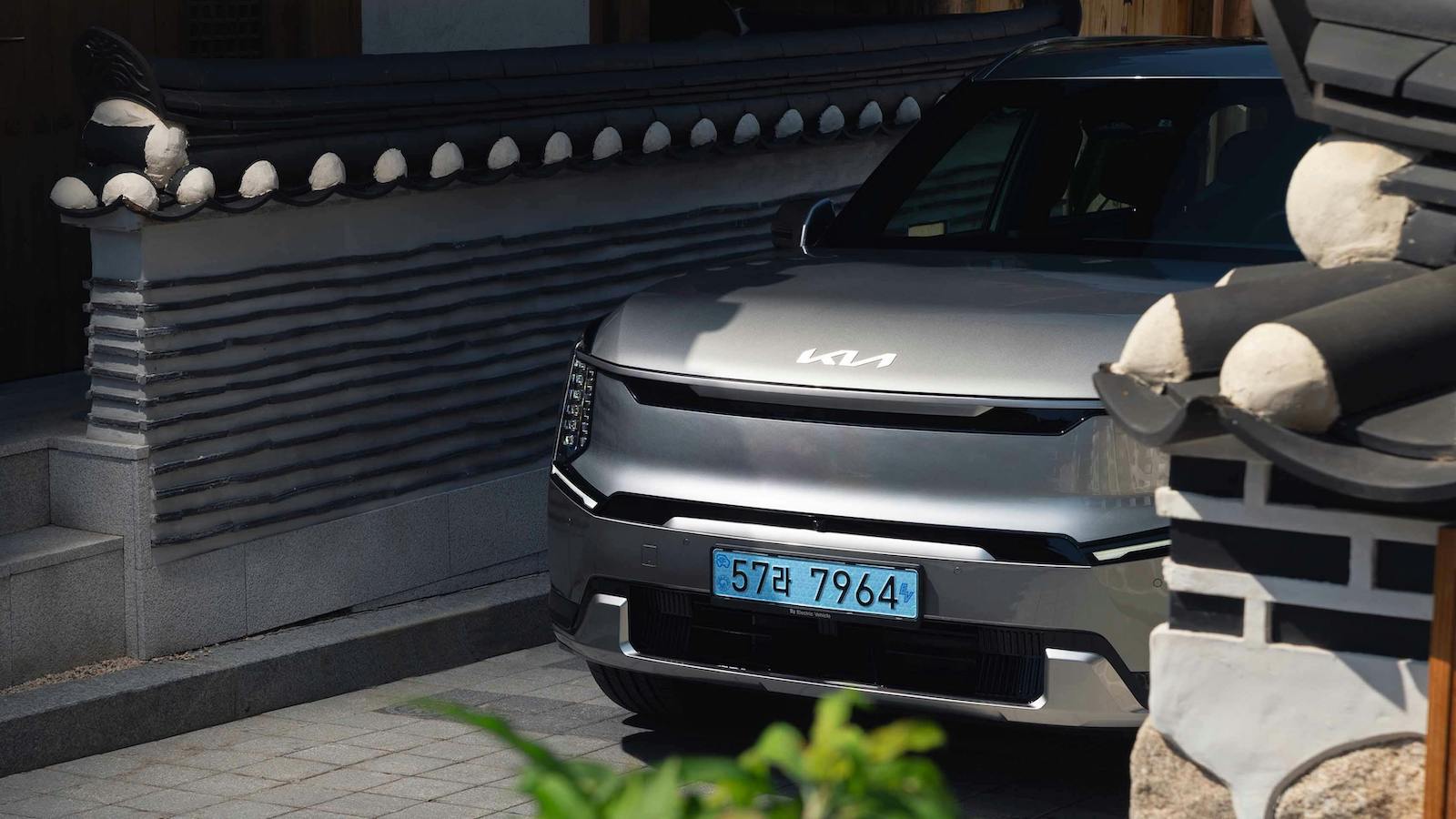Why do drivers switch to electric cars? For most electric vehicle (EV) buyers, it's about money. More specifically, drivers want to save on gas and take advantage of the four-figure tax credits they can claim.
But some consumers may be overestimating their potential savings. According to one analysis, while insurance for EVs varies a lot by make, EVs still cost around 20% more to insure in 2024 than internal combustion engine (ICE) vehicles do.
While gas prices and federal policies are expected to push millions more drivers toward EV ownership over the next decade, EV enthusiasm has lagged in recent years. Here's how high insurance rates fit into the picture.
See also: We Need to Rethink the Future of Cars
Why are EVs so expensive to insure?
Insuring and managing claims is a fundamentally different process when it comes to electric vehicles versus ICE vehicles. As the EV market and infrastructure for electric vehicles evolves, EV and ICE premiums are likely to find more parity, but for now, expect these obstacles in 2024:
EV pricing
While EV price tags are dropping, electric vehicles still have higher sales prices in general than ICE vehicles, which makes them more expensive to replace after accidents and more costly to insure. Between September 2022 and September 2023, the average price paid for EVs fell from $65,000 to $50,683, but that was still higher than the average price for all new vehicles ($47,899).
Repairs
EVs are more expensive to repair than ICE vehicles, for a handful of reasons. For starters, the replacement parts market hasn't kept pace with EV growth. There are also fewer repair shops and technicians qualified to work on EVs than on gas-powered cars. So parts cost around 25% more, and labor is more expensive, too. In 2023, EV repairs cost $1,322 more than ICE repairs on average.
On top of that, EVs have a major battery problem. While the battery in an EV accounts for the majority of the vehicle's value, it's more vulnerable to damage than the battery in an ICE vehicle and more expensive and dangerous to repair. The job can require a specialist.
EV battery issues are especially complex when it comes to Teslas, because some models have the battery parts glued together and sealed into the car, rendering them difficult to inspect and sometimes impossible to replace.
In 2023, the cost to replace an EV battery ran anywhere from $4,000 to $20,000, not including a labor bill that could be as high as $2,000. So even for an EV with minimal battery damage, a write-off could be more cost-effective.
The self-driving myth
In late 2023, a LendingTree study found that Tesla drivers had a higher rate of accidents than drivers of any other vehicle brand. While the study didn't pinpoint an explanation, Tesla issued a recall around that same time for nearly every Tesla on the road. The reason? A problem with their autopilot systems was potentially causing crashes.
Tesla CEO Elon Musk has arguably contributed to the brand's accident proneness. Since 2016, Musk has repeatedly implied that Teslas can drive themselves, and in 2022 some 42% of Tesla Autopilot users believed their vehicles were fully self-driving. Yet the National Highway Traffic Safety Administration (NHTSA) says there is "no vehicle currently available for sale that is fully automated or 'self-driving,'" and in March 2024, the Insurance Institute for Highway Safety (IIHS) gave Tesla's partial driving automation system a "poor" rating.
Teslas account for more than half of all EVs sold, and Tesla's best seller, the Model Y, is one of the most expensive cars to insure.
Are EV insurance rates holding consumers back from buying EVs?
While the cost of buying EVs is a major deterrent to adoption, most consumers aren't specifically concerned about what they'll pay for insurance.
In several consumer surveys, including surveys from AAA, Autolist and S&P Global Mobility, respondents have been asked to state their reasons for not wanting to buy an EV. The reasons given in each survey are nearly identical:
- High purchase price
- Limited access to charging stations
- Lack of confidence in the technology
- Concerns about mileage range
Based on these results, it's not a stretch to assume that EV buyers don't get an idea of what their insurance will cost until after they're committed to a purchase.
How to bring down the cost of insuring EVs
Considering how important price is to consumers, a reduction in EV insurance premiums can still be a good driver for new business. Here's how the insurers with the lowest EV premiums are bringing prices down:
Telematics and safe driving discounts
Unsafe driving is a problem for all vehicle types, but it's more likely to result in costly damage with EVs.
In addition to, or in place of, traditional safe driving discounts, insurers can offer drivers the option to use telematic apps and plug-in devices that collect information about their driving — from hard braking to cell phone use and other hazards. Based on the data, a driver can qualify for a premium discount. For example:
- State Farm, which ValuePenguin found to have the lowest EV premiums on the market, offers safe driver discounts of 30% or more for customers who use their Drive Safe & Save Bluetooth-paired app.
- Tesla's Safety Score (Beta) gives drivers a score from 0 to 100 based on driving behaviors, and the driver's premium can change monthly based on the score. If your average score increases from between 95 and 99 up to 100, you can save over $1,000 per year.
See also: Challenges Facing Tesla Insurance
Bundling incentives
Another way to help EV-drivers reduce their premiums is through bundling discounts, available for customers who buy multiple products or purchase coverage for more than one car. American Family Insurance, another insurer that offers competitive premiums for EVs, gives customers a discount up to 23% for bundling home and auto coverage.
For a more indirect tack, you can also educate customers about the trade-offs involved with EV ownership. While their insurance premiums may be higher after buying an EV, gas savings and potential tax credits can make electric vehicles cheaper to own than similar gas-powered cars, even with insurance prices included.








